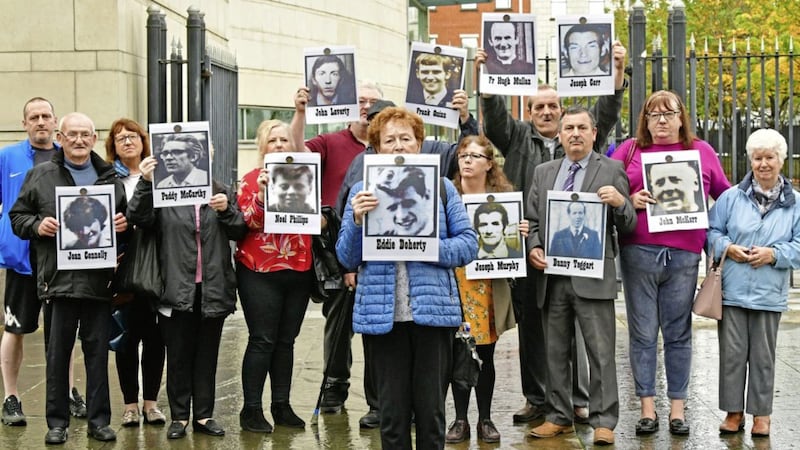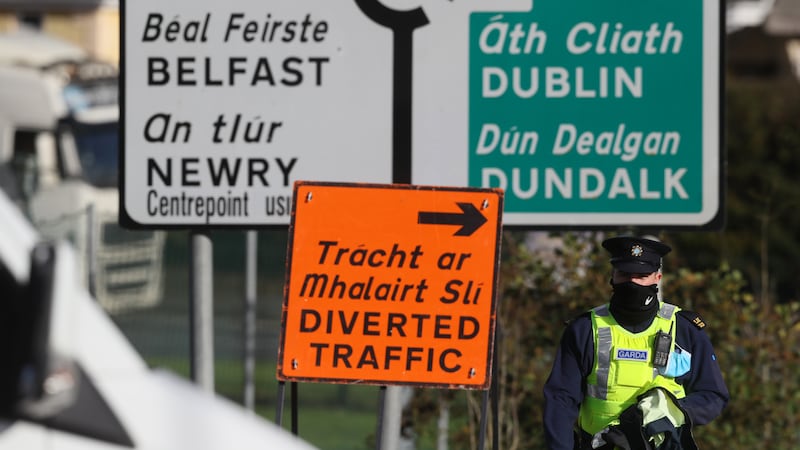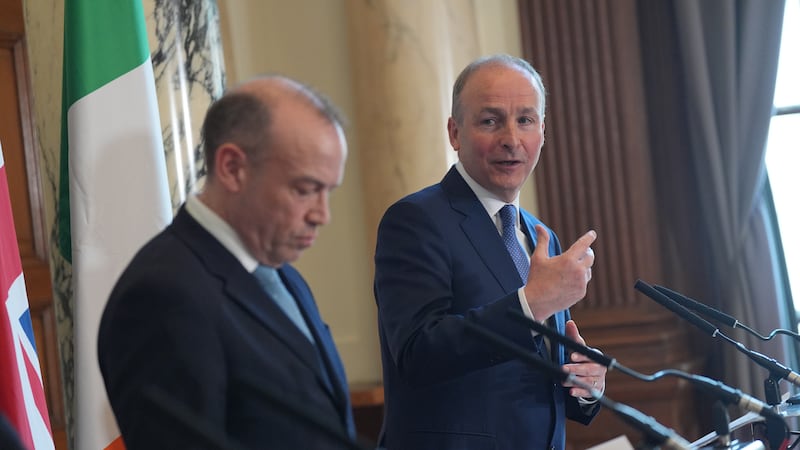People say about grief that thinking ahead is impossible. One day at a time, they say, just keep going.
Healing may eventually come in some way, though the grief does not fade. Thoughts about the pain of grief crowded in this past week, on the rough shoulders of thick Tory insensitivity to all but their army-revering wing.
There were also two gentle remembrances.
Like the shamefully slow payout of pensions, the carelessness of it makes the hurt worse, the ‘Let’s get this done’ from MP and ex-soldier Johnny Mercer on his way to Belfast. Legacy legislation that stops inquiries and investigations is offensive on all sides and ramming it through is a naked bung. This is a Boris Johnson no-brainer, to please a lobby he likes to keep sweet and offend people he barely notices or massively dislikes.
The Conservative party’s militarists overlap with other gung-ho types, the main beneficiaries meant to be soldiers accused of unlawful killing. Whatever comfort the dim prospect of a court hearing gave relatives and injured has been ripped away by the crudeness of this proposition. There are other voices, kinder sights.
Ballymurphy Poems by Eilish Rooney draws on observations and testimonies from the 2018-2020 inquest into the killings known as the Ballymurphy Massacre and creates a severe poetry. Brought up in a big politically active Ballymurphy family, Rooney is now Scholar Emeritus in the Transitional Justice Institute at the University of Ulster. Few academics are so modest. She published her poems without preface or author’s note at her own expense, paying her dues again after a lifetime’s community activism as local woman, neighbour’s child.
So much has been written about Ballymurphy, mostly in prose. The novelty of this form, the testimony of the bereaved and also asides, renews focus on the killings, those who whitewashed them, and the killers. Including words spoken by soldiers in front of coroner the Honourable Mrs Justice Siobhan Keegan, since last month Chief Justice of Northern Ireland. Who found all the dead entirely innocent.
‘Systemic’
‘I was gentle with the bodies brought into/the Henry Taggart that time. No-one noticed/but I was all the same. Gentle.
I wasn’t the only one. A few of us held back/kept busy here and there didn’t join in./We saw each other.
We said nothing.’
The names of the dead form a litany, a prayer.
‘Francis Quinn had a right to life./Father Hugh Mullan had a right to life./ Noel Phillips had a right to life./Joan Connolly had a right to life.’
Sharp recall lists the inventive lies of the time;
‘British Army officials spoke/to the press and said that the dead were all armed,/that the priest and the man he went/to bless, were gunmen caught in the act’...
‘The best public housing/money could buy in post-war Belfast/and what do they do?/Run riot. Arm their priests.
Bring us all down.
Amen.’
The little book’s last voice is devoted to John James McKerr, one of the older victims. ‘My father lost his right hand in the war’, it begins, before noting one of the oddest aspects of the families’ long struggle on behalf of him and the other dead. Such was the chaos of Internment Day and so much trauma followed that it took decades for them to recognise each other and band together.
‘Years would pass before we learned that others/were also bereaved over those three days./That’s why we came together with them./Like other families, we want to know/who shot our father and broke our hearts./At the inquest, long controlled emotions surfaced/but together we’ve set the record straight.’
The Colin Davidson paintings of people wounded and bereaved in the Troubles, beyond words, are on show again at the Ulster Museum. Go if you can, and agitate for another showing out of Belfast. Eilish Rooney’s poems are available at Springhill Community House and the Cultúrlann, a £5 donation suggested towards a garden of remembrance.
Worth reading, keeping, re-reading.








